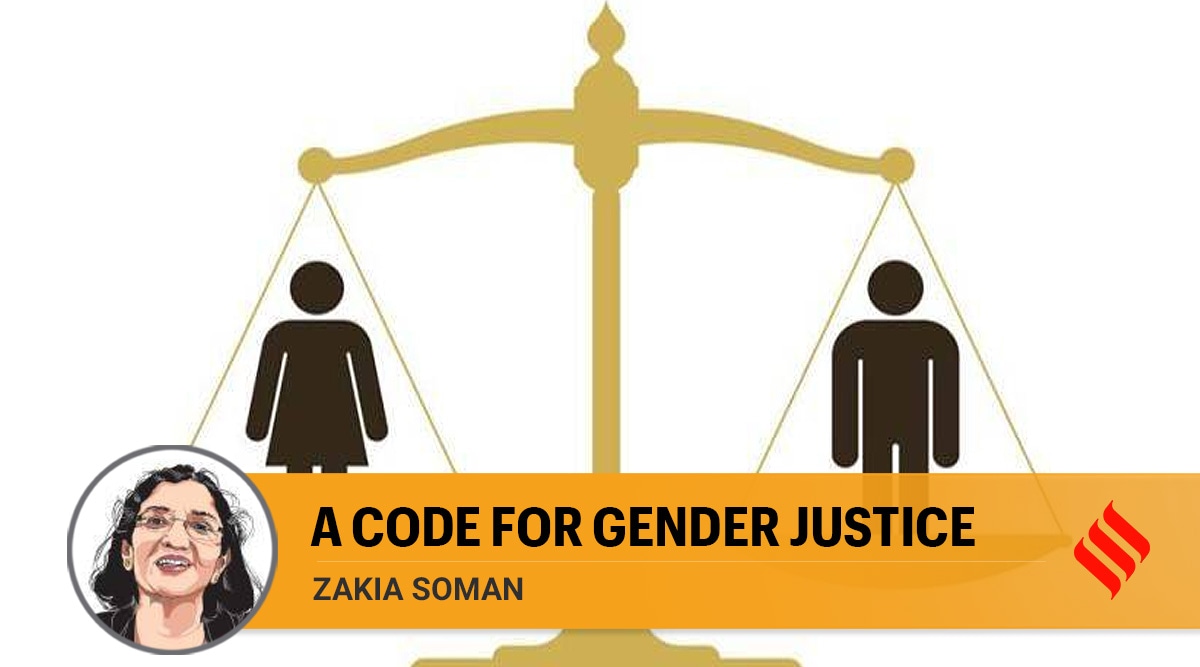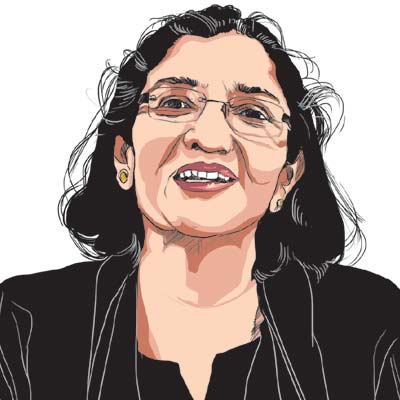Opinion Zakia Soman writes: As a Muslim woman, I want to engage with Uniform Civil Code process
There is no right time for gender justice. This ought to have happened under the Congress or coalition governments of the past
 The silence of Congress and other Opposition parties during the women-led movement against instant triple talaq made the BJP walk away with the credit of abolishing this practice. (Representational Photo)
The silence of Congress and other Opposition parties during the women-led movement against instant triple talaq made the BJP walk away with the credit of abolishing this practice. (Representational Photo)
Though the 21st Law Commission had suggested that a nationwide Uniform Civil Code (UCC) is neither necessary nor feasible, its successor has sought views from the public on the issue. Always a contentious idea, the UCC today has become a highly politicised matter. While the BJP is eager to enact the UCC, the conservative Muslim leadership views it as a direct interference with their faith. With the general elections approaching, we are likely to see heightened polarisation and politicking over it. The original purpose of gender justice and equality could be lost.
Although UCC concerns all citizens across gender, faith and ethnicities, it is made to appear as a predominantly Muslim concern. Hindutva politics and the Muslim leadership’s resistance to reform have contributed to this impression.
Indian Muslims are confronted by the politics of hate. Reform of family law and the UCC are certainly not a priority for most. But there is nothing called the right time for gender justice. This ought to have happened under governments of the past. Today, a majoritarian and gender-biased party appears progressive with its agendas like the UCC. One need look no further than the remission to rapists of Bilkis Bano and the disregard of the women wrestlers’ protest as evidence of the BJP’s views on gender justice. Yet, if the party were to bring in a UCC, anyone who believes in gender justice must engage with the process. As a Muslim woman, I must engage because I see no hope of reform in Muslim personal law.
Ideally, India must have a codified Muslim family law based on the progressive interpretations of religious text and in consonance with constitutional values of justice and equality. But this is hard to imagine because patriarchal rigidity seems to dominate the minds of clerics. Indian Muslims are ruled by the archaic Shariat Application Act of 1937, which is silent on matters such as consent, right to meher, age of marriage, divorce, guardianship and custody of children, women’s share in property and polygamy. All this, despite the affirmative provisions in the Quran. Indian Muslims are ostensibly governed by the Shariat. But where is its written version?
The Shariat of Islamic feminist scholars is different from the Shariat that is commonly understood and practised in India. Morocco, Tunisia, Indonesia and some other Muslim countries have gender-just laws. In itself, a UCC is a good thing. Nehru and Ambedkar felt that it could be a path to gender justice, but opposition from conservatives restrained them from pushing the idea. Eventually, the Hindu Code Bill was introduced leading to a massive reform in marriage and family matters that gave rights to Hindu women. Christian laws were amended as well to give divorce and other rights to women. But no such reform could happen for us despite the progressive jurisprudence in many Muslim countries.
The insistence on misogynistic practices gives credence to political beliefs about Muslim conservatism and backwardness. It provides fodder for Hindutva politics. The silence of Congress and other Opposition parties during the women-led movement against instant triple talaq made the BJP walk away with the credit of abolishing this practice. In all fairness, the Union government supported its abolition while the matter was being heard by the Supreme Court. The Muslim progressives who support women’s equality must engage with the UCC process.
Legal parity for Muslim women must be amongst the key goals of the UCC. The 21st Law Commission recommended changes in different personal laws with a view to ending the injustices in traditional practices. Affirmative practices across faiths and ethnicities must be included in any draft. It must account for gender diversities and provide protection against marital rape. It must re-look at the age of consent and enable all Indians to freely marry a person of their choice. It must provide stringent legal action against “love jihad” vigilantes and those indulging in honour killings. It must also look at women’s unhindered entry into places of worship across faiths. The Special Marriage Act, however imperfect, exists in the statutes. All its provisions and more must be included in the UCC draft.
PM Modi has repeatedly talked about “nari shakti” and “beti bachao”. The framing of an inclusive, gender-just UCC is an opportunity for the government to walk the talk. It must make the exercise a truly collaborative one.
The writer is a founding member of Bharatiya Muslim Mahila Andolan



